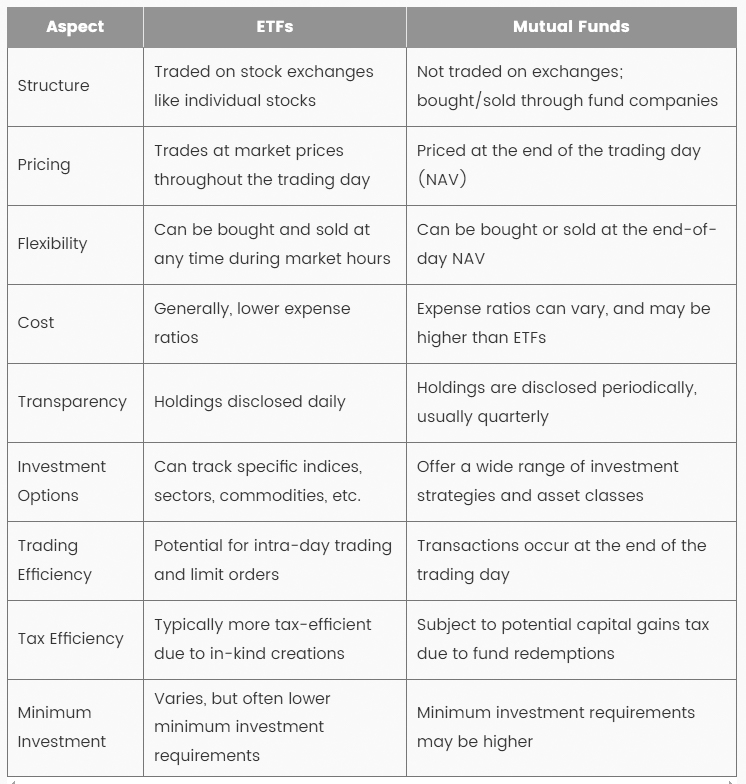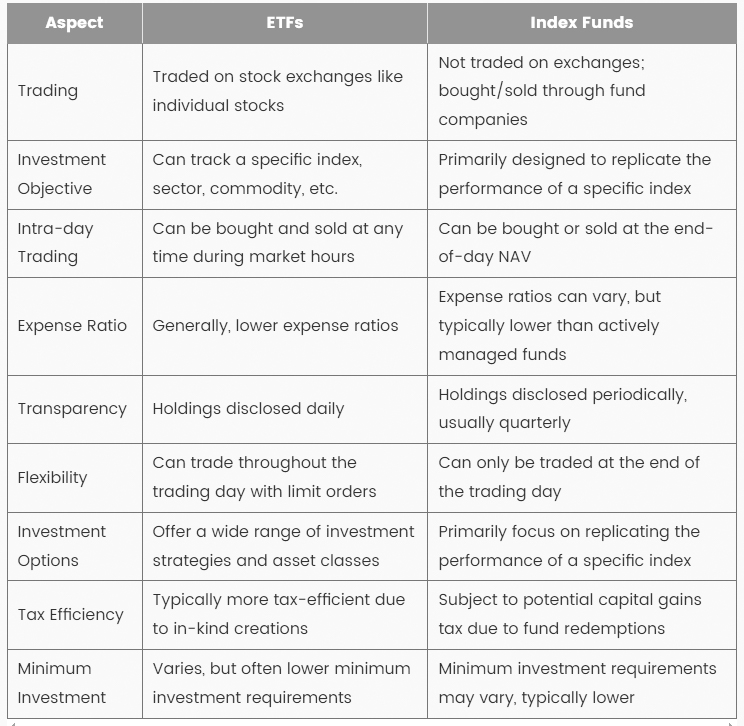- Home
- Prelims
- Mains
- Current Affairs
- Study Materials
- Test Series
Exchange-Traded Funds (ETFs)
In today’s fast-paced and dynamic investment landscape, investors are constantly seeking opportunities to optimize their portfolios. One such avenue that has gained significant popularity and transformed the way we invest is Exchange-Traded Funds (ETFs). ETFs have emerged as a versatile and accessible investment vehicle, offering a wide range of benefits to investors. With their unique features and broad market exposure, ETFs have revolutionized the investment landscape and opened up new possibilities for individuals and institutions alike.
Exchange-Traded Funds (ETFs)
Exchange-Traded Funds (ETFs) are investment funds that are traded on stock exchanges, similar to individual stocks. They are designed to track the performance of a specific index, commodity, sector, or asset class. ETFs offer investors the opportunity to gain exposure to a diversified portfolio of underlying securities, providing a convenient and cost-effective way to invest in a wide range of assets. By purchasing shares of an ETF, investors effectively own a proportional stake in the underlying assets, allowing for instant diversification and liquidity. ETFs have become increasingly popular due to their flexibility, transparency, and potential for market returns.
Features of Exchange-Traded Funds
The following points highlight various features of ETFs, which make ETFs an attractive investment option for individuals seeking flexibility, diversification, transparency, and cost-effectiveness in their investment strategies:
- Exchange-Traded: ETFs are bought and sold on stock exchanges, allowing investors to trade them throughout the trading day at market prices.
- Diversification: ETFs offer investors instant diversification by providing exposure to a basket of underlying securities, such as stocks, bonds, or commodities.
- Tracking Indices: Many ETFs are designed to track specific indices, allowing investors to gain broad market exposure without the need to purchase individual stocks.
- Transparency: ETFs disclose their holdings on a daily basis, providing investors with transparency regarding the underlying assets they own.
- Flexibility: ETFs offer flexibility in terms of investment strategies, asset classes, and sectors, allowing investors to tailor their portfolios to their specific investment goals.
- Lower Expense Ratios: ETFs typically have lower expense ratios compared to actively managed funds, making them cost-effective investment options.
- Intra-day Trading: ETFs can be bought and sold throughout the trading day, providing investors with the ability to enter or exit positions at their desired price points.
- Tax Efficiency: Due to their unique structure, ETFs are often more tax-efficient compared to mutual funds, as they have the potential for in-kind creations and redemptions.
- Liquidity: ETFs are generally highly liquid, meaning there is a high level of trading activity, allowing investors to easily buy or sell shares without impacting the market price.
- Wide Range of Choices: ETFs provide investors with a wide range of choices, including different investment styles, geographical focuses, and asset classes, allowing for diversified and customized investment portfolios.
Popular ETFs in the Indian market:
- Nifty 50 ETF: This ETF tracks the performance of the Nifty 50 index, which represents the top 50 companies listed on the National Stock Exchange (NSE) of India.
- Nifty Bank ETF: This ETF aims to replicate the performance of the Nifty Bank index, comprising the most liquid and large-cap banking stocks listed on the NSE.
- Sensex ETF: This ETF tracks the performance of the Sensex index, which represents the 30 largest and most actively traded stocks on the Bombay Stock Exchange (BSE).
- Nifty Next 50 ETF: This ETF follows the Nifty Next 50 index, which includes the 50 companies listed after the Nifty 50 in terms of market capitalization.
- Gold ETF: These ETFs invest in physical gold and offer investors an opportunity to gain exposure to the price movement of gold without the need for physical ownership.











 Latest News
Latest News
 General Studies
General Studies